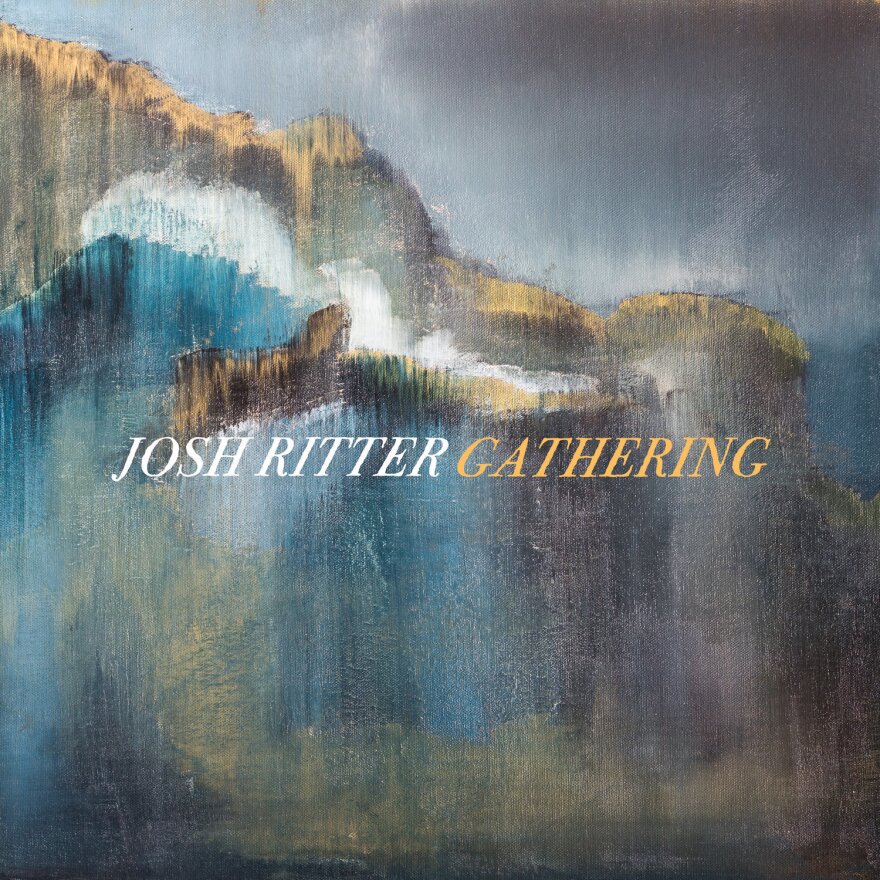

When Josh Ritter began to write new songs, he felt an absolute impending storm. And this singer, songwriter, painter and author, with almost twenty years of songwriting behind him, began looking for a new way to approach his muse.
On this edition ofAll Songs Considered, hear Josh Ritter talk about the creative process for his soon-to-be-released albumGathering,along with a premiere of his new song "Showboat," or read his essay below. — Bob Boilen

I had that feeling you get when the sky is suddenly dark before a summer storm; the thunderheads looming at the edge of the fields, the birds quiet. The smell of the gathering electricity in the atmosphere, the certainty of lightning.
This record is the product of a strange and interesting time. When I started writing Gathering, I felt tired of living in the shadow of my earlier self, my earlier work — but more than discouraged, I felt charged with the possibility and the freedom of cutting myself loose from my own and others' expectations. I began with an exciting sense of dissatisfaction, and what emerged, as I began to find my voice, was a record full of storms. Some, like "Feels Like Lightning" or "Friendamine," are physical storms. Others, like "Dreams," are interior ones. Listening to these songs now, I hear uncertainty, mania, laughter and sadness, all vying for their place on the album. I was surprised by the new voice.
I still can't tell what era these stories are from. They feel part roustabout, part psalm to me. The narrator of "Showboat" is outsized; a big talker who carries deep inner uncertainties and struggles to keep a strong front against the world raging around him. Like all of us, at some point in our lives, he forces himself to laugh through real darkness, whether alone or among others. In quieter moments, like on "Strangers," or "Thunderbolt's Goodnight," or "Train Go By," the vulnerability of the characters shines through the cracks of their exterior bluster.
As I worked, I also found myself painting again in a serious way. The landscapes that emerged followed the same preoccupations with gathering storms that are in evidence on the songs.

When it came time for recording, I had more songs than I have ever had at one time. Rather than picking through them in advance , I opted to record everything I had over the course of two weeks. The goal was to put a ton of stuff down and think about it later. Trina Shoemaker, my band and I headed for the studio.
After the whirlwind of recording had subsided, I was left with a pile of thirty songs. I spent the next couple months sifting through them in order to decide which ones best hung together to form the record. We did backing vocals and horns in some other studios in Nashville and North Carolina. I asked Bob Weir to sing on "When Will I Be Changed." We had written his record, Blue Mountain, together, and working with him was deeply influential to my writing during this time.
I have been writing records for almost twenty years now. Each one has been different from the last in subject and form, but with Gathering I feel I've found a new electric dissatisfaction, a new way to rejoice as the storm rolls in. — Josh Ritter
Copyright 2021 NPR. To see more, visit https://www.npr.org. 9(MDAxNzg0MDExMDEyMTYyMjc1MDE3NGVmMw004))








